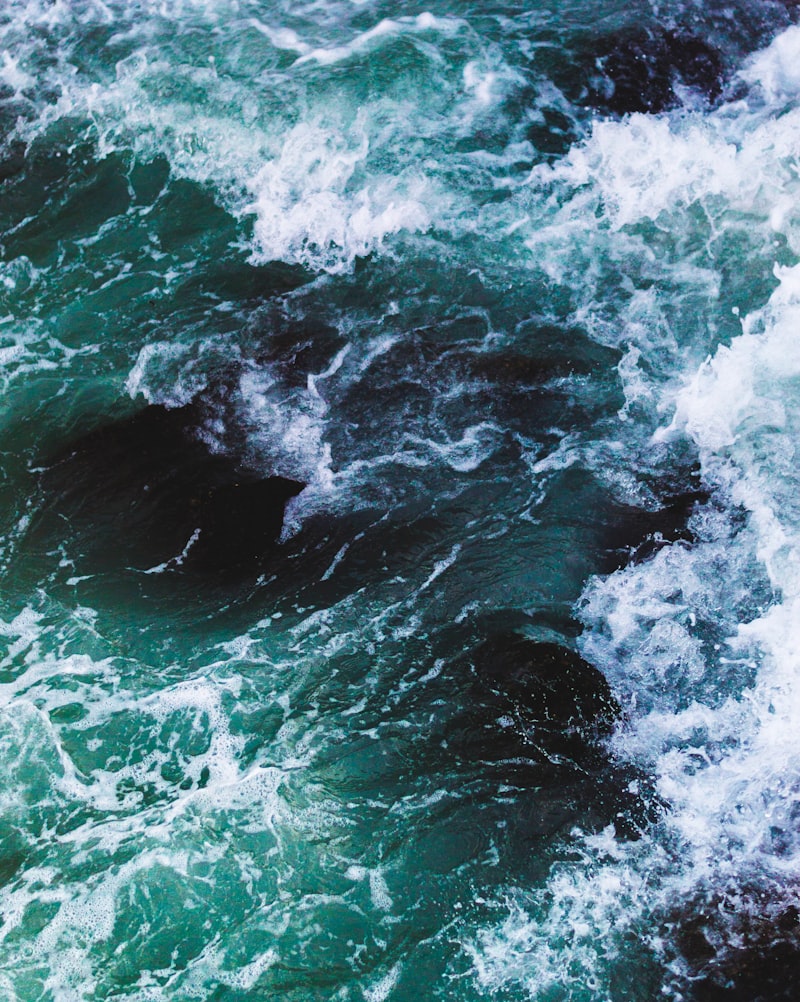FIJI Water aslen bir Amerikan şirketi olan “The Wonderful Company” tarafından üretilmektedir. 1996 yılında kurulan bu şirket, dünyanın en kaliteli ve temiz suyunu sunma vizyonuyla yola çıkmıştır. Fiji’nin benzersiz coğrafi konumu ve saf doğal kaynak suları, FIJI Water’ın ticari başarısının arkasındaki temel etkenlerden biridir.
FIJI Water, Fiji adasının sahip olduğu volkanik kaynak sularını kullanarak üretilmektedir. Fiji’nin derin yer kabuğunda bulunan volkanik taşlar, suyun mineral bakımından zengin olmasını sağlamaktadır. Bu da FIJI Water’ın benzersiz tadını ve kalitesini ortaya çıkarmaktadır.
Bununla birlikte, FIJI Water’ın üretim süreci de büyük önem taşımaktadır. Şirket, Fiji’nin doğal kaynaklarını korumak ve sürdürülebilirlik ilkelerine bağlı kalmak adına çevresel etkileri minimize etmeye odaklanmıştır. FIJI Water, yerel toplulukları destekleyerek sosyal sorumluluk projelerine de katkıda bulunmaktadır.
Dünya genelinde FIJI Water, saflığı ve kalitesiyle tanınmaktadır. İnsanlar, FIJI Water’ın benzersiz tadını ve sağlık faydalarını takdir etmektedir. Ayrıca marka, ürünlerini lüks restoranlardan süpermarket raflarına kadar geniş bir yelpazede sunarak, tüketicilere kolay erişim imkanı sağlamaktadır.
FIJI Water Amerikan şirketi “The Wonderful Company” tarafından üretilen bir markadır. Fiji adasının yer altı kaynaklarından elde edilen bu su, dünya genelinde popülerlik kazanmıştır. FIJI Water, üretim süreci ve sürdürülebilirlik ilkelerine uyumuyla da dikkat çekmektedir.
FIJI Water: Exotic Luxury or Environmental Disaster?
Picture yourself on a tropical island, surrounded by pristine blue waters and lush greenery. Your senses are awakened by the refreshing taste of FIJI Water, a brand that has become synonymous with exotic luxury. But behind its glamorous image lies a controversial environmental footprint that raises questions about its true sustainability.
FIJI Water has capitalized on its unique selling point – water sourced from an underground aquifer deep within the remote Yaqara Valley in Fiji. The allure of this untouched paradise is hard to resist, and consumers are willing to pay a premium for a taste of this seemingly idyllic experience. However, concerns have emerged regarding the impact of FIJI Water’s operations on the local ecosystem.
One of the major criticisms against FIJI Water is its carbon footprint. Despite being bottled at the source, the long-distance transportation required to distribute the product globally results in significant greenhouse gas emissions. Critics argue that this contradicts the brand’s claims of being environmentally friendly and sustainable.
Additionally, there are concerns about the extraction of water from the aquifer and its potential consequences for the local communities. Some argue that the company’s activities contribute to water scarcity and deprive indigenous Fijians of their vital resource. This raises ethical questions about the fairness of profiting from a limited natural resource while local communities suffer.
Furthermore, the issue of plastic waste cannot be overlooked. Like many bottled water brands, FIJI Water relies on single-use plastic bottles that contribute to the global plastic pollution crisis. Despite efforts to use more recycled materials, the sheer volume of bottles produced continues to be a concern for environmentalists.
To address these concerns, FIJI Water has taken steps towards sustainability. The company has implemented various environmental initiatives, such as reducing its reliance on fossil fuels and partnering with local communities for reforestation projects. They also claim to prioritize responsible water management practices. However, critics argue that these actions are not enough to offset the brand’s overall impact on the environment.
FIJI Water presents itself as a luxurious and exotic brand, offering a taste of paradise in a bottle. However, its environmental footprint raises significant concerns about its sustainability claims. The carbon emissions from transportation, water extraction issues, and plastic waste contribute to an ongoing debate about the true cost of this seemingly idyllic product. As consumers, it is crucial to consider the environmental implications of our choices and seek alternatives that prioritize both luxury and sustainability.
The Untold Story of FIJI Water’s Global Dominance
Fiji Water is a brand that has achieved remarkable global dominance in the bottled water industry. The untold story behind its success lies in a combination of strategic marketing, unique sourcing, and a commitment to environmental sustainability.
From its humble beginnings, Fiji Water set out to create a premium bottled water brand that stood out from the rest. The company recognized the importance of branding and positioned itself as the epitome of purity and luxury. Through captivating advertising campaigns and partnerships with high-profile events and celebrities, Fiji Water established itself as a status symbol, appealing to consumers who sought a touch of luxury in their hydration choices.
Beyond its marketing prowess, Fiji Water’s success can be attributed to its unique sourcing. Nestled in the remote Yaqara Valley on the Fijian island of Viti Levu, the company tapped into an underground aquifer that naturally filters the water through volcanic rock. This natural filtration process gives Fiji Water its distinct taste and mineral composition, setting it apart from other bottled water brands.
But Fiji Water’s global dominance goes beyond just marketing and sourcing. The company has also made significant strides in environmental sustainability. Recognizing the impact of plastic waste on the planet, Fiji Water implemented initiatives to reduce its carbon footprint and promote recycling. They invested in renewable energy sources, implemented eco-friendly packaging, and supported local communities through various conservation projects. These efforts not only resonated with environmentally conscious consumers but also reinforced the brand’s commitment to social responsibility.
Fiji Water’s journey to global dominance is a testament to its strategic marketing, unique sourcing, and dedication to environmental sustainability. By positioning itself as a premium brand, leveraging its pristine water source, and actively addressing environmental concerns, Fiji Water has captivated consumers worldwide. Its success story serves as an inspiration for other brands looking to make a mark in the competitive beverage industry.
Behind the Label: Unveiling FIJI Water’s Sourcing Practices
Fiji Water is a widely recognized brand in the bottled water industry, renowned for its pristine image and commitment to sustainability. However, behind the label lies a complex web of sourcing practices that raise questions about the true environmental impact of this popular beverage.
Unlike what the idyllic imagery suggests, Fiji Water’s extraction process involves controversial methods. The company sources its water from an underground aquifer situated in the Yaqara Valley of Viti Levu, Fiji’s main island. Despite claims of being sustainable, concerns have been raised regarding the potential depletion of this finite resource. The extraction of large quantities of water has the potential to disrupt the delicate balance of the local ecosystem, impacting both flora and fauna.
Moreover, the transportation of Fiji Water to international markets presents additional challenges. To reach consumers worldwide, the bottled water undergoes an extensive journey, traveling thousands of miles by ship or air freight. This raises serious questions about the carbon footprint associated with Fiji Water and its contribution to global greenhouse gas emissions. Critics argue that promoting a product that requires such extensive transportation contradicts the brand’s eco-conscious image.
Another aspect that has come under scrutiny is the social impact of Fiji Water’s operations. Although the company has invested in various community projects in Fiji, there are ongoing debates about the fairness of their agreements with the local government. Some argue that Fiji Water enjoys significant tax incentives and benefits while not adequately compensating Fiji for its valuable water resources.
Peeling back the label reveals a more nuanced picture of Fiji Water’s sourcing practices. While the brand promotes sustainability and purity, concerns persist about the potential environmental harm, carbon emissions, and social implications associated with its operations. As consumers, it is crucial to stay informed and critically analyze the practices behind the products we choose, ensuring they align with our values and contribute to a more sustainable future.
From Paradise to Controversy: FIJI Water’s Impact on Local Communities
FIJI Water, known for its pristine image as a premium bottled water brand, has faced controversy regarding its impact on local communities. The company’s journey from being hailed as the “water of paradise” to facing scrutiny is an intriguing tale.

Nestled in the remote Yaqara Valley of Fiji, the company sources its water from an ancient aquifer believed to be untouched by pollution. With its promise of pure and natural hydration, FIJI Water quickly gained popularity among consumers seeking a luxurious and healthy lifestyle.
However, this picturesque narrative took a sharp turn when concerns arose about the environmental and social consequences of FIJI Water’s operations. Critics argue that the company’s extraction practices have resulted in significant depletion of the island’s water resources, affecting local communities who rely on it for their daily needs.
Furthermore, there are allegations that FIJI Water has not done enough to support these communities in terms of infrastructure development and access to clean water. Some contend that the company’s presence has exacerbated socioeconomic disparities, with profits flowing out of Fiji while leaving locals without proper resources.
The controversy surrounding FIJI Water highlights the complex relationship between corporate interests and community welfare. As consumers become more conscious of the environmental and social impacts of their choices, companies face increasing pressure to demonstrate responsible practices and contribute positively to the communities they operate in.
In response to the backlash, FIJI Water has initiated several sustainability initiatives, including investments in renewable energy and community-driven programs. They aim to alleviate some of the concerns raised and regain public trust.
The case of FIJI Water serves as a reminder that even seemingly idyllic brands can find themselves embroiled in controversy. It underscores the importance of transparency, accountability, and responsible business practices in today’s socially conscious world.

As consumers, we have the power to influence change by supporting companies that prioritize both profit and the well-being of local communities. By demanding greater transparency and holding corporations accountable, we can foster a more sustainable and equitable future.
The journey of FIJI Water from paradise to controversy sheds light on the complexities of corporate responsibility. The impact on local communities serves as a stark reminder that businesses must strive for ethical practices and actively contribute to the welfare of the areas they operate in. As consumers, we must continue to question and demand accountability from companies, shaping a better world for both people and the planet.
Bir önceki yazımız olan Hanon Hangi Ülkenin Markası? başlıklı makalemizi de okumanızı öneririz.